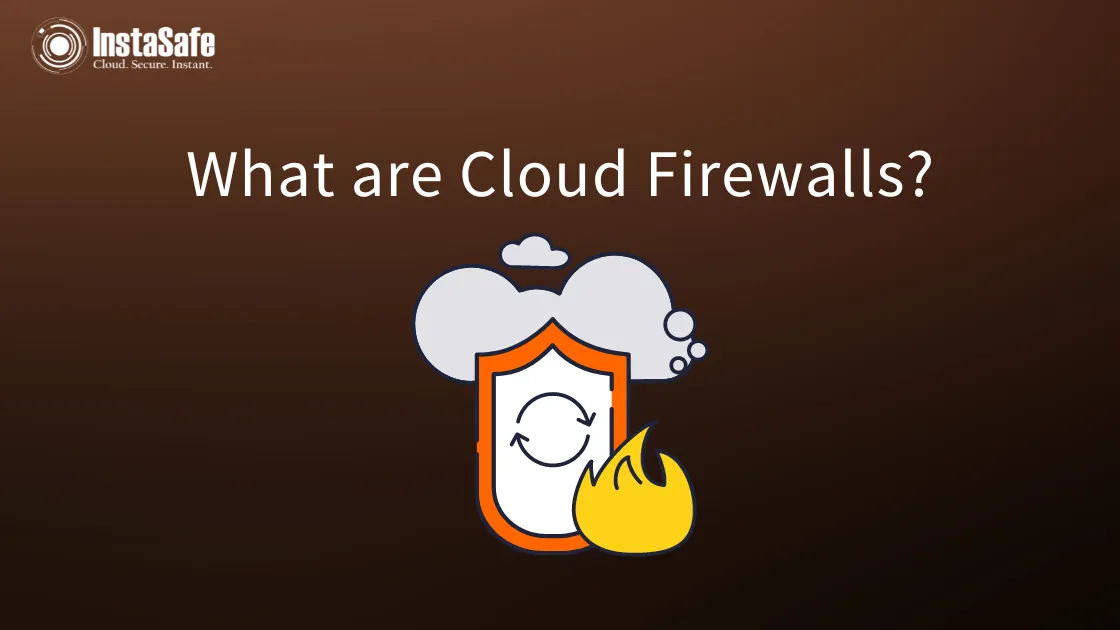What are Cloud Firewalls?

During the early days of IT security, the focus was on securing the network. Eventually, this level of security was applied to all applications. Today, the need to protect the applications is regardless of the infrastructure.
A firewall is a security tool that monitors network traffic and allows or blocks data packets based on safety rules. Its purpose is to create a boundary between your internal network and external traffic, like the Internet, to prevent malicious traffic, such as viruses and hackers, from entering.
Today, Cloud Firewalls are no longer optional in the public cloud; they are necessary to provide a basic level of visibility and control for security, regardless of the underlying infrastructure.
What is a Cloud Firewall?
A Cloud Firewall is similar to a traditional firewall deployed in a cloud environment. However, it creates a virtual barrier around cloud assets such as CRM, databases, and email.
Cloud Firewalls prevent unauthorised network traffic from entering cloud platforms. The best Cloud-Managed Firewall also protects the internal or private network and on-premise assets.
Overview of How Cloud Firewall Works
Cloud Firewalls work similarly to traditional firewalls, with the main difference being that they are hosted in a cloud environment.
These firewalls function as packet-scanning firewalls, filtering out incoming data before it enters the network. The typical functions of a cloud firewall include the following:
Step 1: Packet Filtering
Packets are small amounts of data in a network that are filtered before bypassing the firewall.
First, the packets are scanned for threats; if they match, the firewall blocks them from entering the network.
Step 2: Proxy Service
Proxy services prevent direct connections between the client's device and incoming packets, protecting the network area from unauthorised access.
Step 3: Stateful Inspection
Cloud Firewalls also perform stateful inspection of incoming data packets—the firewall checks for policies between the source and destination to establish a session between them.
If the required policies are not met, access will not be provided, and users will need to register new policies.
Types of Firewalls in Cloud Computing
Two types of cloud firewalls are available, each defined by what users need to secure. Both types are software-based and monitor incoming and outgoing data packets to filter them against suspicious traffic.
SaaS Firewalls
These firewalls are designed to secure an organisation's network, similar to traditional on-premises firewalls. The only difference is that it's deployed off-site in the cloud.
This type of firewall is also called a Software-as-a-service firewall (SaaS firewall), Security-as-a-service (SECaaS), or Firewall-as-a-service (FWaaS).
Next-Generation Firewalls
Next-Gen Firewalls are cloud-based services intended to be deployed within a virtual data centre. They protect an organisation's servers in a platform-as-a-service (PaaS) or infrastructure-as-a-service (IaaS) model.
The firewall application exists on a virtual server and secures incoming and outgoing traffic between cloud-based applications.
Benefits of a Cloud-Based Firewall
Scalability
Cloud-based Firewalls are easily scalable as they can handle an increase in bandwidth. Conversely, hardware firewalls are harder to maintain and need more scalability.
Availability
Cloud firewalls can be available 24/7 as long as the network infrastructure has redundant power, internet access, and a backup strategy in case of a site failure.
In contrast, on-premise firewalls are entirely dependent on the existing IT infrastructure, can be more complex to manage, and are more expensive to maintain and support.
Real-Time Updates
Cloud-based firewalls get real-time updates over the Internet, which makes them constantly updated on the latest cyber-attacks and better protect networks.
They are also easy to deploy, consume less time, cause minimal downtime for the business, and are easy to maintain.
Budget-Friendly
Cloud firewalls are cost-effective as they do not require heavy hardware to host firewalls, nor do they require the same level of maintenance as on-premise firewalls.
They can be installed virtually anywhere in an organisation as long as they have a protected path.
- Extended Protection
Cloud-based firewalls can filter traffic from various sources, distinguish between a bot and a human, and prevent bots from attacking your network.
What is the Difference Between a Cloud Firewall and a Hardware Firewall?
A hardware firewall is a physical device that monitors data packets travelling between a computer network and the Internet or at the network's edge.
Installing a dedicated hardware firewall may require advanced IT knowledge or a dedicated IT department, making it more common among large companies with high-security concerns, such as banks.
Cloud Firewalls are hosted in the cloud, hence the name. They create a secure virtual barrier around cloud platforms, applications, and infrastructure.
Unlike hardware firewalls, there is no physical perimeter in cloud firewalls. Instead of filtering data at a single point, cloud firewalls filter data at the cloud level, keeping malicious actors out.
Conclusion
Barriers like filters or firewalls protect Zero Trust Security by stopping dangers from escaping a certain area, and this helps protect the entire cloud from harm.
If you use a Zero-Trust Approach for security, you won't need lots of extra firewalls, web gateways, and other virtual or physical security devices.InstaSafe Technologies Zero Trust solution makes sure that anyone or anything trying to access the network proves their identity, even if they're inside the network perimeter.
Key Products
Multi Factor Authentication | Identity And Access Management | ZTNA | Zero Trust Application Access | Secure Enterprise Browser
Key Features
Single Sign On | Endpoint Security | Device Binding | Domain Joining | Always On VPN | Contextual Access | Clientless Remote Access | Device Posture Check
Key Solutions
VPN Alternatives | DevOps Security | Cloud Application Security | Secure Remote Access | VoIP Security
